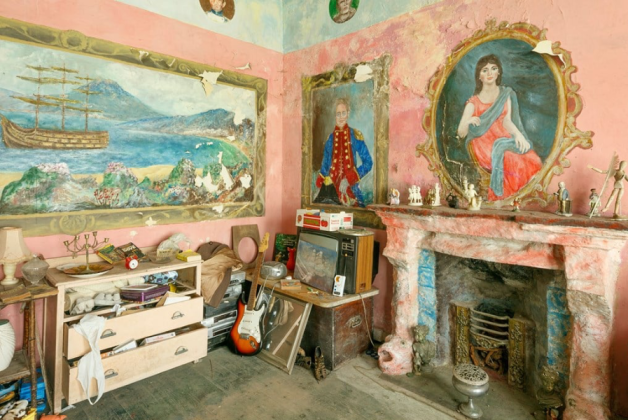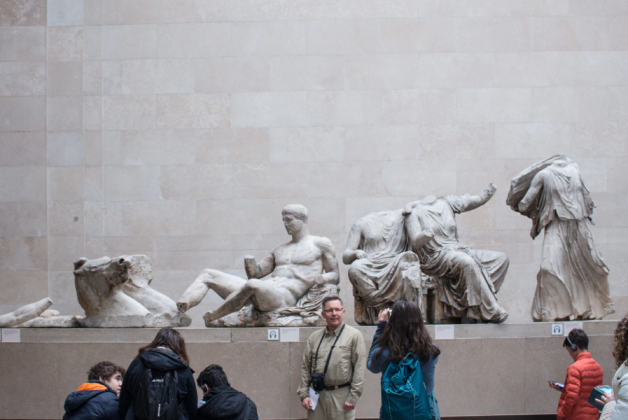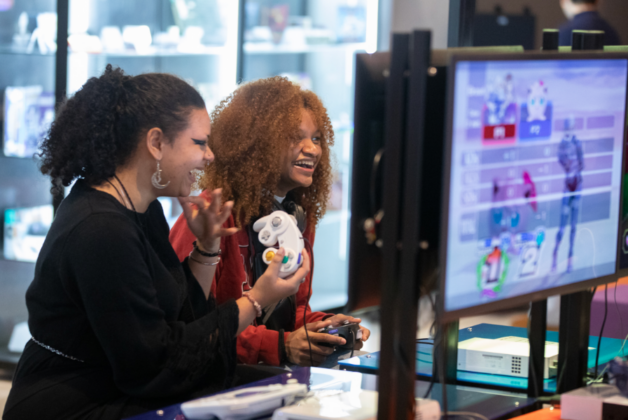Article: David Styles | Image: © Vlogbase
Museums across the world have a wealth of cultural history locked up in archived film and audio recordings. It has never been possible – both in terms of time and money – for all this media to be retrieved, meaning millions of hours of rich resources have remained inaccessible.
Vlogbase, a tech start-up founded by Andy Surtees and Luke Stephenson, is now set to offer access to all this information in a single click.
As with so many inventions which take off stratospherically, necessity was the root of Vlogbase’s creation. Having worked independently in sound engineering and video production, Surtees and Stephenson wound up working in the same office space – and subsequently sharing a client brief.
This particularly demanding client would give the pair “100 hours of video on a Thursday” and ask them to “find the entertaining bits for a five minute social media post tomorrow morning”. This, the duo rightly believed, was impossible. They decided to change that.
“We figured it couldn’t be that hard,” Stephenson quipped. “At the time we couldn’t find anything ‘on the shelf’ to do this job and AI was starting to make a splash.” Surtees interjected, “we were looking for a week, convinced we would find this software to do the job. We couldn’t.”
Pooling their industry knowledge, the pair set about creating a platform which effectively listens to and understands media files – all through the power of artificial intelligence. Equipped with a £3,000 grant from a start-up accelerator, the technologically intrepid duo have achieved their goal. Vlogbase, an easy-to-use tool for searching, manipulating and displaying video and audio, was born.
How it works
Rather than simply replicating the two-dimensional content of a recording, Vlogbase extracts information and nuance so that the digital files can be searched for terms and even items recognised in video.
“Conventionally, if you digitise a tape that’s on a shelf in an archive and what you’ll get from it is a digital version of that tape and nothing else,” Stephenson explains.
“If you wanted to use that for research then someone still has to manually listen through and find the bit they want. What our system effectively does is listens to everything in the audio and video files. It also detects objects in video – i.e. things you would actually see in the footage. This means that you can search an archive like using Google.”
The cloud-based tool will be made available to users in either a subscription version or through purchasing bundles of credits.
Andy SurteesThe minimum time it would have taken to go through would have been 132 hours...with us you could search for a particular result in 0.1 seconds.
Explaining one of the anticipated destinations for the platform, Surtees notes, “the ultimate thing we would all want in a museum is to have a person stood next to us who was infinitely knowledgeable about everything in the museum and its archive. We’re trying to build that.
“For example, if you explained to an archive everything you were looking for and it could instantly prepare all the documents you needed and explain how they relate to each other. Added to this, they would be available 24/7 and anywhere in the world.”
An early example of the platform being utilised in the sector was through a collaboration with Cleveland Ironstone Mining Museum in Skinningrove. The tool was presented with 132 hours of 1980s oral history recordings from interviews with steel workers; all of which were successfully transcribed with a single click.
“The minimum time it would have taken to go through would have been 132 hours, without factoring in stopping and starting to find the information you want. With us you could search for a particular result in 0.1 seconds,” Surtees continued.
“If you’re at the British Library or National Archives – the sort of places we envisage this being used – it is less about time saving, simply because without the software you just couldn’t do it. If you were trying to find every time any given word or phrase was used in the British Library collection you’d need an army of researchers and a decade dedicated to it; nobody is going to do it. With Vlogbase this would, once again, be done in 0.1 seconds.”
Any size of organisation can utilise the tool, with the software being fully scalable and possessing the capacity to extract up to 120 languages.
Spotify for archiving?
While the comparison between Vlogbase and Google is already cemented, another future goal for the duo is to emulate streaming service Spotify. In this model, researchers could sign up for accounts that grant them access to museums’ uploaded archives.
Explaining how it would work, Stephenson told us, “what we want to do with this Spotify for archives idea is very much simplify the process as all the copyright and legal information will already be in the system. All the paperwork would be handled by the platform.”
Surtees added that this will reserve the option for the uploader to keep their content totally private or in a variety of public ways. “For each piece of data uploaded you dictate whether and how that is made available to other users.
“Eventually we want that to include an option to allow those with a researcher account to access the material from any organisation who has given consent. Making it more appealing for the institutions, if someone uses that data then the museum or archive will receive a kickback.”
Looking for more detail on Vlogbase? Andy Surtees explains the whole process in this tutorial video at vlogbase.com
While this is something that is yet to be finalised, the pair are sure there’s an appetite for a Spotify-type resource in the sector. “What we’ve heard from researchers is that a pain point for them is when they go to museums, ask for the tapes and they don’t know where they are,” Stephenson said. Vlogbase could well be a future one-stop-shop for such researchers.
The more organisations that have become aware of platform, the busier Stephenson and Surtees’ schedule has become. Museums, libraries, researchers, PhD candidates and a whole host of cultural bodies are already looking at ways to leverage this proprietary software in order to transform archiving – once they’ve got over the shock of such a solution having been invented.
Editor’s note: Having spent hours pouring over this particular interview, a tool that could produce a fully searchable transcript is tantalising to say the least.




